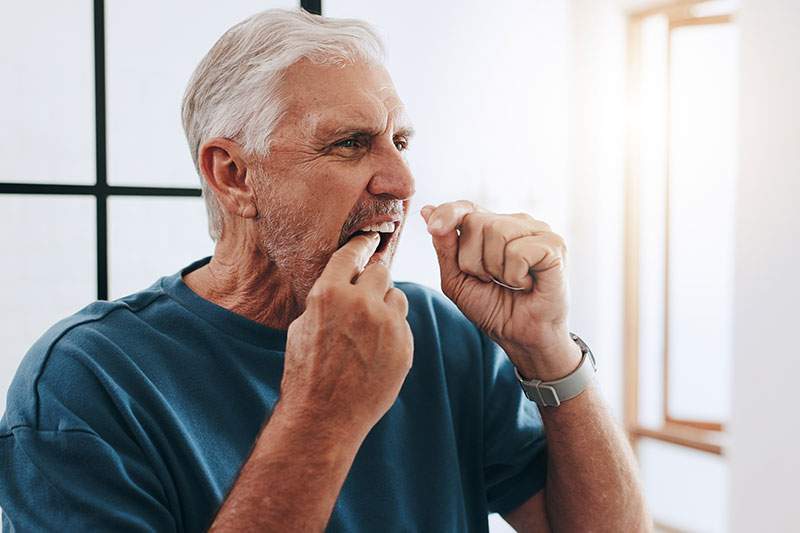Good oral health is essential to a person’s overall well-being. For older adults, it may become more difficult to maintain an oral hygiene routine. Poor dental maintenance can lead to more serious problems, such as gum disease. But what does gum disease look like in the elderly?
Gum disease can result in gum inflammation, tooth loss and even more severe health issues like heart disease. If you notice that the older adults in your life are experiencing unusual oral pain, gum disease could be the cause. Learn how to spot signs of elderly hygiene issues, like gum disease, and prevent their long-term effects.
How Does Gum Disease Happen?
Dental care for aging adults is a vital component of their overall health and wellness. The National Library of Medicine reported that nearly 60% of adults aged 65 or older have some form of gum disease. It can occur due to old age, other health issues or poor dental care. Some medications can cause oral side effects, such as reduced tooth enamel, which can lead to gum disease.
Living alone could also increase the chances of gum disease in older adults. According to the 2022 Census, three in 10 elderly adults live alone. If your loved one is frequently alone and has trouble moving around the house, maintaining daily hygiene may be more difficult for them. They may forget to brush their teeth or find it hard to do so on their own.
Signs of Gum Disease in Aging Adults
What does gum disease look like in seniors and aging adults? Some signs to look for include:
- Tender, inflamed or bleeding gums
- Loose or extremely sensitive teeth
- Pain when chewing
- Gum recession (gums pulling away from your teeth)
If you notice an older adult in your life experiencing these symptoms, schedule an appointment with a dentist as soon as possible.
How to Maintain Good Oral Health for Seniors
Gum disease in elderly adults can be prevented with the right tools and resources.
- Nutritious Diet: A healthy diet impacts all parts of the body, including your teeth. Eating unhealthy foods constantly can lead to bad breath and tooth decay. A diet rich with Vitamin C, Vitamin D, Vitamin A and Calcium can keep your teeth strong and fight gum inflammation.
- Develop a Consistent Oral Hygiene Routine: Make sure your senior parent brushes their teeth at least twice a day and flosses, too. Giving them reminders to brush their teeth after each meal or setting an alarm can be helpful. If they have trouble with a traditional toothbrush, the National Institute on Aging suggests trying an electric toothbrush for easier use.
- Schedule and Attend Dentist Appointments: Schedule consistent dental appointments. A dentist can help answer questions like “What does gum disease look like?” and make sure that your loved one’s oral hygiene is in good shape. If you or another family member is unable to take a senior parent or friend to the dentist, an in-home caregiver can provide transportation assistance.
Preventing Gum Disease in the Elderly
For aging adults, enjoying a meal or laughing with friends and family should not be a painful experience. At FirstLight Home Care, we promote healthy aging in all areas, including dental care. Oral hygiene should not keep older adults from having their best day each day.
Still wondering what does gum disease look like in seniors or not sure how to help an aging family member maintain consistent dental hygiene? FirstLight Home Care’s personal care services include personal hygiene care for the elderly. Contact us at a FirstLight location near you to help your older loved one get back on track with their oral health.
